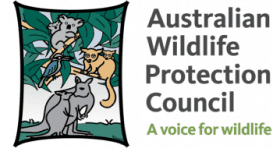
Victory amidst wildlife crisis
Share this page Victory amidst wildlife crisis: Sydney council joins fight against deadly rat poisons In a significant step for wildlife protection, Camden Council has become the latest in a line of local governments to eliminate Second-Generation Anticoagulant Rodenticides (SGARs) from all their facilities. This watershed moment comes hot on the heels of alarming new research revealing these deadly poisons are infiltrating Australia’s most iconic marsupial species. Growing movement for change Camden Council’s decisive action shows momentum for change is building across New South Wales. Following Albury City’s pioneering decision to discontinue their use of SGARs earlier this year, Camden’s commitment to wildlife-friendly rodent management proves that councils are increasingly recognising the devastating ecological impacts of these indiscriminate killers. “By removing SGARs from all council buildings and parks, Camden has created a safer environment for nearly 200 native species in their region,” notes Animal Liberation’s campaign director. “Their swift response after learning about the risks shows that change isn’t just possible — it’s happening now”. Devastating evidence of marsupial poisoning While council actions so far are cause for celebration, groundbreaking research has uncovered a disturbing new dimension to this crisis. SGARs are now confirmed to be poisoning some of Australia’s most beloved and endangered marsupials, with catastrophic consequences: 50% of tested marsupials, including Tasmanian Devils and Quolls, carried SGARs in their bodies 21% contained multiple poison types, creating deadly toxic cocktails Up to 17.3% likely died directly from SGAR poisoning — not predators, not habitat loss, but poisons sold freely in stores and online. Perhaps most alarming was the discovery that one Chuditch, or Western Quoll, contained one of the highest concentrations of SGARs ever recorded in a wild carnivore. For species already teetering on the edge of extinction, these poisons could be delivering the final blow. Deadly chain reaction through ecosystems Unlike traditional rodent management methods, SGARs create a ripple effect throughout ecosystems. When a Tasmanian Devil scavenges a poisoned carcass or a Spotted-tailed Quoll consumes contaminated prey, they ingest these long-lasting toxins. The victim suffers for days — weakened, disoriented, bleeding internally — before succumbing to a slow, painful death.This expanding body of evidence paints a grim picture: products marketed for “rodent control” are decimating Australia’s unique wildlife. From Powerful Owls to Tasmanian Devils, from Wedge-tailed Eagles to Eastern Quolls, and everyone in between — SGARs are pushing already threatened species closer to extinction. The Path Forward While Camden and Albury demonstrate leadership, much work remains to be done. The Australian Pesticides and Veterinary Medicines Authority continues to allow the sale of these deadly poisons online and in retail stores across the country, despite mounting evidence of their ecological harm.But together, we can accelerate change. Every signature on the petition to ban SGARs in NSW builds pressure on decision-makers. Every council that eliminates these poisons creates a safer habitat for native wildlife. And every voice raised in support of alternative rodent management brings us closer to breaking this toxic cycle forever.Will you join the movement to protect Australia’s remarkable wildlife from these indiscriminate killers? Sign the petition today at www.al.org.au/ban-rat-poisons and help ensure these iconic Australian species survive for generations to come.The dominoes are falling. From Albury to Camden, the tide is turning against SGARs. Your voice could be the one that tips the scales toward statewide action. What Should You Look For? Products containing SGARs are often sold under brand names or generic labels that can make them hard to identify at first glance. Commonly available SGAR products include: Brodifacoum-based products: Often sold under brands like ‘Talon’ or ‘Ditrac’. Bromadiolone-based products: Found in brands such as ‘Mortein Rat Kill’, ‘Just One Bite’, or ‘RatSak’. Difenacoum-based products: Less common but still available under certain control labels, such as ‘The Big Cheese’ or ‘Ratshot’. These products are often brightly packaged and placed alongside everyday household items, making them easy to purchase but devastatingly harmful when used. If you spot these products being sold or suspect they’re being used in your neighborhood, report them immediately so advocacy groups can take action.
